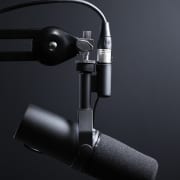Social Media Metrics to Monitor to Improve Your Content Strategy
StrategyDriven Insights Audio |
Social media has become an integral part of many businesses’ marketing strategies. It provides a platform to connect with customers, build brand awareness, and promote products and services. However, simply having a social media presence is not enough. To get the most out of your social media marketing, it’s important to monitor key metrics that can help you understand what’s working and what’s not. In this post, we’ll explore some social media metrics that you should be monitoring to improve your content strategy.
Engagement Rate
Engagement rate is one of the most important metrics to monitor on social media. It measures how many people are interacting with your content, such as liking, commenting, and sharing. High engagement rates indicate that your content is resonating with your audience and driving conversations.
To calculate engagement rate, divide the number of engagements (likes, comments, shares, etc.) by the number of followers or impressions. A higher engagement rate is better, as it indicates that your content is creating a strong connection with your audience.
Reach
Reach measures the number of people who see your content. It’s important to monitor reach to understand how far your content is spreading and how many people it’s reaching. A high reach means that your content is being shared and seen by a large number of people.
To increase reach, consider using paid advertising, such as promoted posts or ads, to target specific audiences. You can also optimize your content for shareability, such as using eye-catching visuals or incorporating trending topics and hashtags.
Click-Through Rate
Click-through rate (CTR) measures the number of clicks your content receives. It’s an important metric to monitor because it indicates how effective your content is at driving traffic to your website or other desired destination.
To calculate CTR, divide the number of clicks by the number of impressions. A higher CTR is better, as it means that your content is compelling and driving action from your audience.
Conversion Rate
Conversion rate measures the number of people who take a desired action, such as making a purchase or filling out a form. It’s an important metric to monitor because it helps you understand how effective your social media marketing is at driving business results.
To calculate conversion rate, divide the number of conversions by the number of clicks. A higher conversion rate is better, as it means that your social media marketing is effectively driving business outcomes.
Follower Growth
Follower growth measures how many new followers you’re gaining over time. It’s important to monitor follower growth to understand how well your content is resonating with your target audience and how effectively you’re building your social media presence.
To increase follower growth, consider running contests or promotions, optimizing your profile and content for search engines, making your content sharable with tools like share button from ShareThis, and engaging with your audience through comments and messages.
Mentions and Hashtags
Mentions and hashtags are important metrics to monitor because they help you understand how your brand is being talked about on social media. By monitoring mentions and hashtags, you can identify brand advocates, respond to customer feedback, and identify trends and topics that are relevant to your audience.
To monitor mentions and hashtags, use social media listening tools or simply search for your brand name or relevant keywords on social media platforms.

Monitoring the time of day that your content is being shared can help you understand when your audience is most active on social media. This can help you optimize your posting schedule to ensure that your content is being seen by the largest possible audience.
To monitor the best times to post, use social media analytics tools or simply track engagement rates at different times of the day. You can also experiment with posting at different times to see what works best for your audience.
Content Type
Monitoring the type of content that is generating the most engagement can help you identify what your audience is interested in and what types of content are most effective at driving engagement.
To monitor content type, look at the engagement rates for different types of content, such as photos, videos, and text posts. You can also experiment with different types of content to see what works best for your audience.
Audience Demographics
Understanding your audience demographics can help you create more targeted and effective content. By monitoring metrics such as age, gender, and location, you can tailor your content to the preferences and interests of your target audience.
To monitor audience demographics, use social media analytics tools or simply track engagement rates and other metrics by age, gender, and location. You can also survey your audience to gain a deeper understanding of their preferences and interests.
Share of Voice
Share of voice measures the percentage of social media conversations about your brand compared to your competitors. It’s an important metric to monitor because it helps you understand your brand’s position in the market and how well you’re competing with other brands.
To monitor share of voice, use social media listening tools or simply track the number of mentions and conversations about your brand compared to your competitors. You can also analyze the sentiment of these conversations to gain insights into how your brand is perceived compared to your competitors.
In conclusion, monitoring social media metrics is a critical component of any effective social media marketing strategy. By tracking engagement rate, reach, click-through rate, conversion rate, follower growth, mentions and hashtags, time of day, content type, audience demographics, and share of voice, you can gain valuable insights into your audience and improve your content strategy.














Leave a Reply
Want to join the discussion?Feel free to contribute!